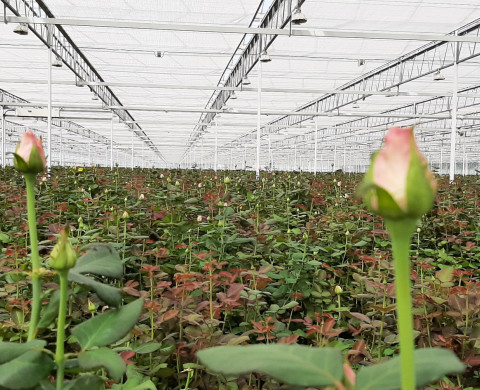Smart natural enemies for sustainable pest control

Parasitoids are key natural enemies that contribute to biological control of economically important pests in both agricultural and natural ecosystems. They are however not always efficient in finding the pest insect in the greenhouse because the (mass-)rearing conditions differ from the greenhouse environment in which they are released. This reduces parasitoid motivation and efficiency to search for herbivore insect pests. Interestingly, research shows that parasitoids make use of volatiles during foraging emitted by the host and the plant in response to insect feeding damage. Moreover, experience with these host and plant volatiles can increase the parasitoids’ foraging success through learning, which can significantly improve their ability to control insect pests. This learning ability of parasitoids holds great promise for the optimization of biological pest control but thus far has not led to an application.
Within this project, we aim to (1) understand the chemical and behavioral ecology of parasitoid wasps and (2) apply this knowledge to develop a method for training parasitoids with pest related volatiles to improve their biological control efficiency in greenhouses. We therefore focus in particular on mealybug control for developing a prototype of this concept. This is a large collaborative project (public-private partnership), involving the Netherlands Institute of Ecology (NIOO-KNAW), WUR Entomology , Greenhouse Horticulture in Bleiswijk, Pherobank BV, Aeres Hogeschool Wageningen, Glastuinbouw Nederland, Koppert Biological Systems B.V, Stichting Kennis in je Kas (KijK) and Stimuflori.
Read more about the project (in Dutch):
Experts
-

-
Astrid Kruitwagen
Postdoc , Terrestrial Ecology

